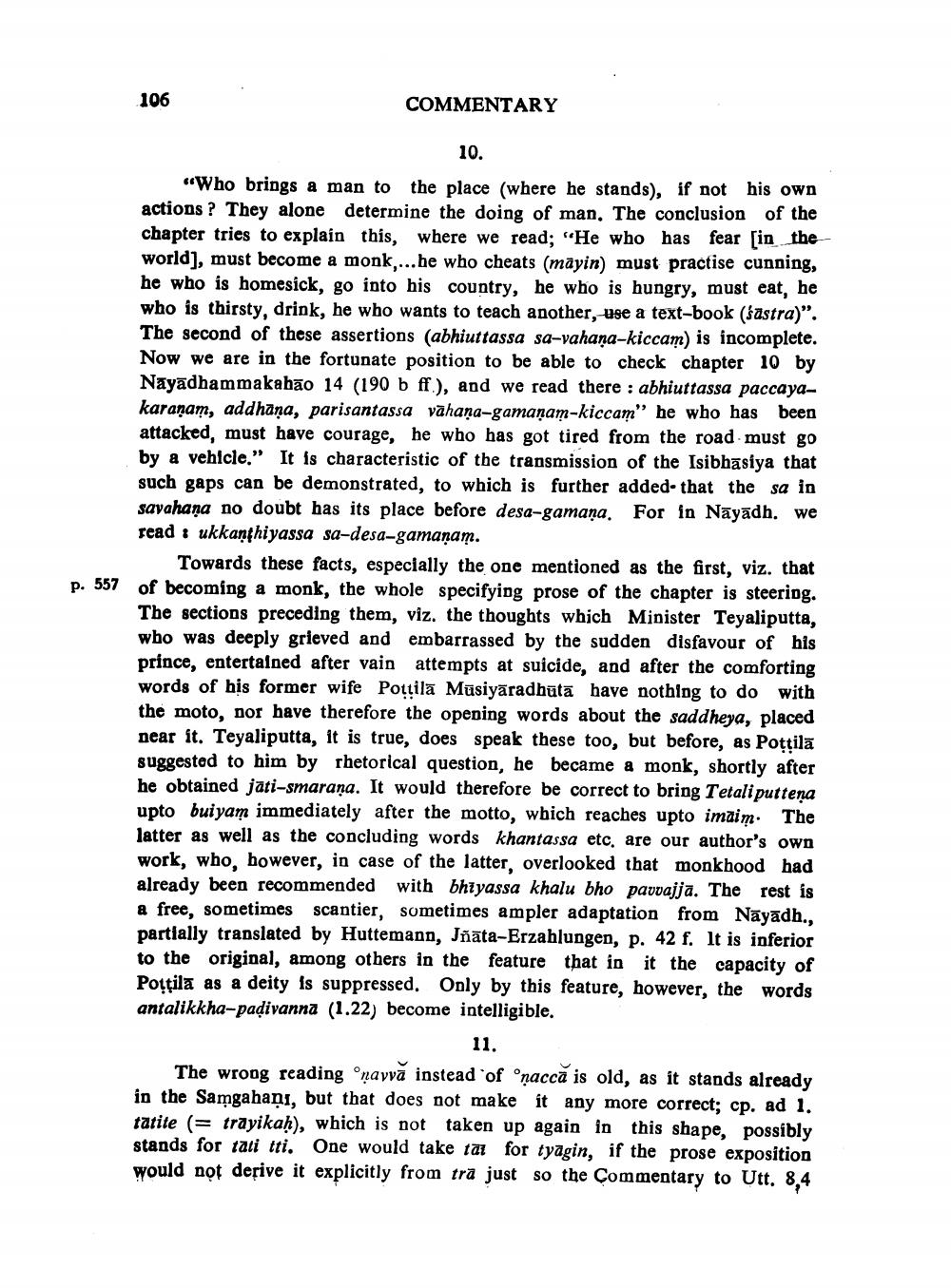________________
106
COMMENTARY
10.
p. 557
“Who brings a man to the place (where he stands), if not his own actions ? They alone determine the doing of man. The conclusion of the chapter tries to explain this, where we read; "He who has fear [in the world), must become a monk,... he who cheats (māyin) must practise cunning, he who is homesick, go into his country, he who is hungry, must eat, he who is thirsty, drink, he who wants to teach another, use a text-book (śastra)". The second of these assertions (abhiuttassa sa-vahana-kiccam) is incomplete. Now we are in the fortunate position to be able to check chapter 10 by Nayādhammakabão 14 (190 b ff), and we read there : abhiuttassa paccayakaranam, addhana, parisantassa vāhana-gamanam-kiccam" he who has been attacked, must have courage, he who has got tired from the road must go by a vehicle.” It is characteristic of the transmission of the Isibhāsiya that such gaps can be demonstrated, to which is further added that the sa in savahaņa no doubt has its place before desa-gamaņa. For in Nāyādh. we read : ukkanthiyassa sa-desa-gamanam.
Towards these facts, especially the one mentioned as the first, viz. that of becoming a monk, the whole specifying prose of the chapter is steering. The sections preceding them, viz. the thoughts which Minister Teyaliputta, who was deeply grieved and embarrassed by the sudden disfavour of his prince, entertained after vain attempts at suicide, and after the comforting words of his former wife Pottilā Mūsiyāradhūtā have nothing to do with the moto, nor have therefore the opening words about the saddheya, placed near it. Teyaliputta, it is true, does speak these too, but before, as Pottila suggested to him by rhetorical question, he became a monk, shortly after he obtained jati-smarana. It would therefore be correct to bring Tetali puttena upto buiyam immediately after the motto, which reaches upto imaim. The latter as well as the concluding words khantassa etc. are our author's own work, who, however, in case of the latter, overlooked that monkhood had already been recommended with bhīyassa khalu bho pavuajja. The rest is a free, sometimes scantier, sometimes ampler adaptation from Nāyadh., partially translated by Huttemann, Jñāta-Erzahlungen, p. 42 f. It is inferior to the original, among others in the feature that in it the capacity of Poțţila as a deity is suppressed. Only by this feature, however, the words antalikkha-padivanna (1.22) become intelligible.
11. The wrong reading onayvā instead of oņacca is old, as it stands already in the Samgahanı, but that does not make it any more correct; cp. ad 1. tatite (= trāyikah), which is not taken up again in this shape, possibly stands for tati tti. One would take tat for tyagin, if the prose exposition would not depive it explicitly from tra just so the Commentary to Utt. 8,4




